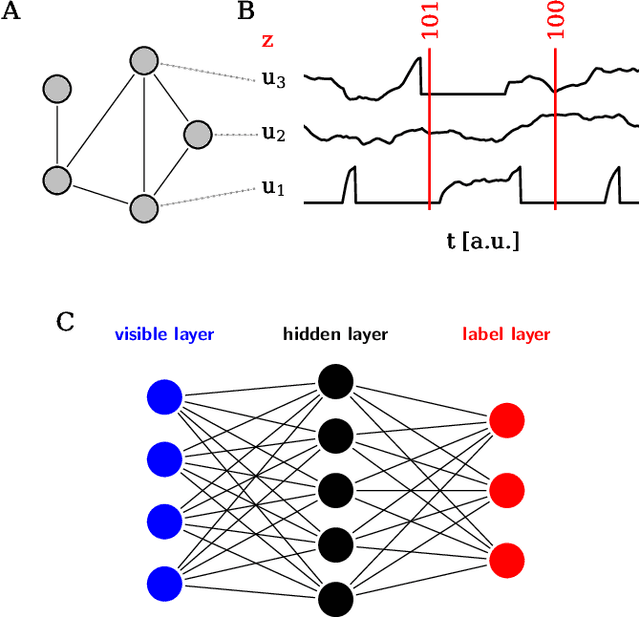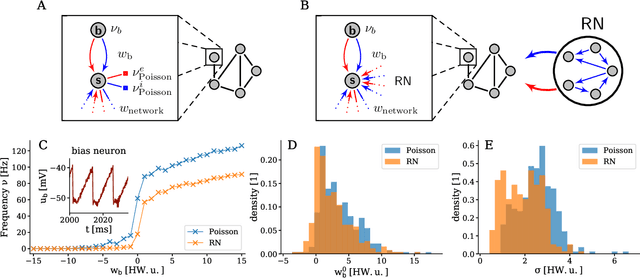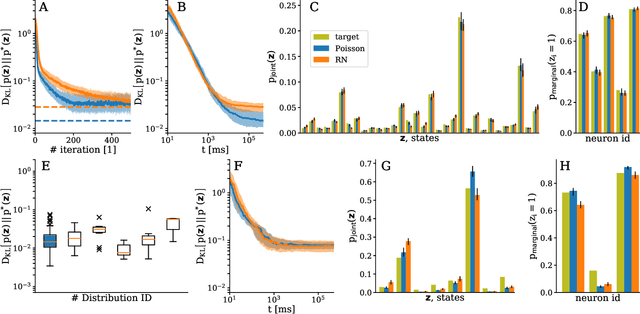Generative models on accelerated neuromorphic hardware
Paper and Code
Jul 11, 2018



The traditional von Neumann computer architecture faces serious obstacles, both in terms of miniaturization and in terms of heat production, with increasing performance. Artificial neural (neuromorphic) substrates represent an alternative approach to tackle this challenge. A special subset of these systems follow the principle of "physical modeling" as they directly use the physical properties of the underlying substrate to realize computation with analog components. While these systems are potentially faster and/or more energy efficient than conventional computers, they require robust models that can cope with their inherent limitations in terms of controllability and range of parameters. A natural source of inspiration for robust models is neuroscience as the brain faces similar challenges. It has been recently suggested that sampling with the spiking dynamics of neurons is potentially suitable both as a generative and a discriminative model for artificial neural substrates. In this work we present the implementation of sampling with leaky integrate-and-fire neurons on the BrainScaleS physical model system. We prove the sampling property of the network and demonstrate its applicability to high-dimensional datasets. The required stochasticity is provided by a spiking random network on the same substrate. This allows the system to run in a self-contained fashion without external stochastic input from the host environment. The implementation provides a basis as a building block in large-scale biologically relevant emulations, as a fast approximate sampler or as a framework to realize on-chip learning on (future generations of) accelerated spiking neuromorphic hardware. Our work contributes to the development of robust computation on physical model systems.
 Add to Chrome
Add to Chrome Add to Firefox
Add to Firefox Add to Edge
Add to Edge